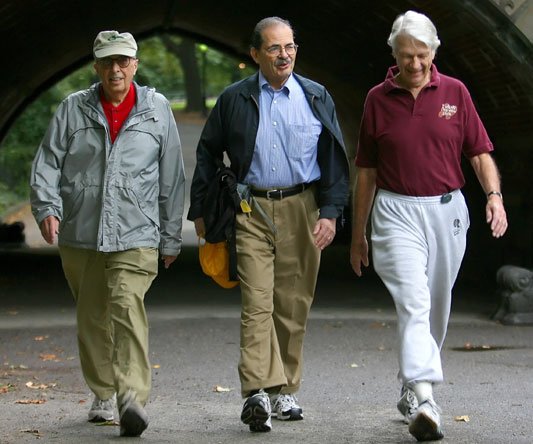
US researchers found that the speed of someone’s walking may predict the likelihood of developing dementia later in life.
The scientists also told a conference that grip strength in middle-age was linked to the chance of a stroke.
They said more studies were needed to understand what was happening.
Experts said the findings raised important questions, but more research was needed.
Suggestions of a link between slow walking speed and poor health have been made before.
A study, published in the British Medical Journal in 2009, said there was a “strong association” between slow walking speed and death from heart attacks and other heart problems. A Journal of the American Medical Association study suggested a link between walking faster over the age of 65 and a longer life.
Dr. Erica Camargo, who conducted the latest study at the Boston Medical Centre, said: “While frailty and lower physical performance in elderly people have been associated with an increased risk of dementia, we weren’t sure until now how it impacted people of middle age.”

Brain scans, walking speed and grip strength were recorded for 2,410 people who were, on average, 62 years old.
Results presented at the Academy of Neurology’s annual meeting said that 11 years later, 34 people had developed dementia and 79 had had a stroke.
The researchers said slower walking speeds were linked to a higher risk of dementia and stronger grip with a lower risk of stroke.
Dr. Erica Camargo said: “These are basic office tests which can provide insight into risk of dementia and stroke and can be easily performed by a neurologist or general practitioner.
“Further research is needed to understand why this is happening and whether preclinical disease could cause slow walking and decreased strength.”
The findings have not yet, however, been published in a peer-reviewed academic journal.